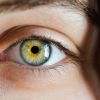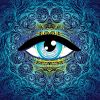-
 +17 +1
+17 +1Study identifies factors that could make people more prone to depressive symptoms during hangovers
New research provides insight into the underlying psychological factors related to depressive symptoms during alcohol hangovers. The findings, which appear in the journal Addictive Behaviors, indicate that both emotion dysregulation and repetitive negative thinking play a key role.
-
 +16 +1
+16 +1What's Really Causing America's Mental Health Crisis? : Consider This from NPR
This week the U.S. Preventive Services Task Force announced recommendations that doctors screen all patients under 65 for anxiety. Since the beginning of the pandemic, we've heard about sharp increases in the number of people suffering from mental health problems.
-
 +4 +1
+4 +1Antidepressants work, but just not how scientists thought they worked
Most clinical trials of antidepressants were done decades ago in people with severe depression recruited from specialist mental health services. Yet most people who take these drugs have mild to moderate depression. We wanted to know whether a common antidepressant called sertraline works for this group. We found that, indeed, it does work, but differently from how we expected.
-
 +18 +1
+18 +1COVID-19 pandemic triggers 25% increase in prevalence of anxiety and depression worldwide
In the first year of the COVID-19 pandemic, global prevalence of anxiety and depression increased by a massive 25%, according to a scientific brief released by the World Health Organization (WHO) today. The brief also highlights who has been most affected and summarizes the effect of the pandemic on the availability of mental health services and how this has changed during the pandemic.
-
 +8 +1
+8 +1Breathing to Manage Your Stress - science and practice behind the powerful RSA breathing technique.
The role of the breath in meditation and stress management programs is well established. As a meditation strategy, focusing on the breath is primarily a tool for concentration, a place to focus the mind. As a stress management technique, slowing the breath, “belly breathing,” and focusing on the exhalation are all common (and effective) approaches to shifting the nervous system out of a state of hyperarousal.
-
 +14 +1
+14 +1Social anxiety linked to unfavorable and unstable social comparisons
New research published the Journal of Abnormal Psychology suggests that social comparisons play an important role in social anxiety. The findings provide evidence that people with social anxiety view themselves as inferior or deficient compared to others, which in turn is related to worsened mood.
-
 +19 +1
+19 +1The Science Behind Why We Find Perky, Happy People Unbearable
Research shows we perceive unfailingly cheerful people as ignorant, naive, or not capable of critical thinking.
-
 +18 +1
+18 +1Eye-tracking study suggests that people with social anxiety not only avoid looking at strangers but also their surroundings
A new study published in the journal PLOS One suggests that social anxiety is characterized by increased avoidance, rather than hypervigilance, during social situations.
-
 +12 +1
+12 +1People with heightened anxiety have altered perceptions of their breathing, study finds
New research provides evidence that anxiety is related to altered interoception, the perception of one’s own internal bodily states. The new study, published in the journal Neuron, examined the relationship between anxiety and the perception of breathing.
-
 +11 +1
+11 +1If You Want To Enjoy Leisure Time, Don’t Think Of It As Wasteful
However you like to take time for yourself, from reading to hiking to playing video games, leisure time can be a vital way of relaxing, promoting good mental and physical health, boosting social relationships, and inducing happiness. But whether we fully experience those benefits, a new study suggests, may depend on the way we view leisure time itself.
-
 +11 +1
+11 +1Squid Game owes its popularity to anxieties of modern life
Squid Game, a Netflix series made in Korea by Hwang Dong-hyuk, was released on 17 September and within 10 days was the platform’s highest ranking show in 90 countries. It’s the first time a Korean drama has ever been at the top of the US charts; 95% of the viewers are outside Korea, capsizing the idea that the younger generation won’t read subtitles. I managed to kid myself the other day that my 12-year-old daughter had watched so many episodes in a single session she was effectively reading a book.
-
 +4 +1
+4 +1If You Can’t Stand People Fidgeting, You May Have Misokinesia
In 2014, Todd Handy was having dinner with a new girlfriend when she interrupted the meal with a confession. "I don't want you to feel attacked," he remembered her saying. She explained that Handy had a fidgeting habit, and she found it very stressful to watch and be around. "Of course, I was concerned as a partner,” said Handy, a professor of psychology at the University of British Columbia. “But as a visual neuroscientist and somebody who studies visual attention, it really piqued my interest. I thought, 'Hey, what's going on here? This is a very interesting phenomenon.'”
-
 +3 +1
+3 +1Anxiety Disorders Affecting Teens and Young Adults.
Anxiety is one clinical mental health diagnosis that many people deal with, but so few of us have space or comfort to talk about. Globally, anxiety disorders affect teens and young adults at higher rates, and they face the added pressures of society and stigmas. Because of this, many teens and young adults do not speak out about their experiences or even concerns dealing with anxiety.
-
 +10 +1
+10 +1Perfectionistic cognitions appear to play a key role in clinical anxiety
A new study found that perfectionist thinking patterns contributed to posttraumatic stress disorder (PTSD) and generalized anxiety disorder (GAD) symptoms, over and above several known control variables. The findings were published in Cognitive Behaviour Therapy.
-
 +18 +1
+18 +1Study: More exposure to political TV ads heightens anxiety
New research led by Jeff Niederdeppe, professor of communication, reveals that increased exposure to televised campaign ads is associated with increased odds of a person being diagnosed with anxiety by a doctor.
-
 +19 +1
+19 +1New evidence of genetic link between depression and anxiety
Depression and anxiety are highly comorbid conditions, with about three-quarters of people with an anxiety disorder also exhibiting symptoms of major depressive disorder, but little has been known until now about the genetic causes of the disorders. New research led QIMR Berghofer Medical Research Institute has identified 509 genes that influence both depression and anxiety, confirming the genetic relationship between the mental health conditions.
-
 +18 +1
+18 +1Pandemic paradox: People want to improve mental health by exercising, but stress and anxiety get in the way, research shows
New research from McMaster University suggests the pandemic has created a paradox where mental health has become both a motivator for and a barrier to physical activity.
-
 +17 +1
+17 +1Study suggests psychedelics may improve the mental health symptoms of individuals suffering from race-based trauma
New research suggests that psychedelics may be a viable treatment option for those suffering from race-based trauma. An observational study, published in ...
-
 +4 +1
+4 +1Phone Call Anxiety: Why So Many Of Us Have It, And How To Get Over It
If you find phone calls stressful, there are a few things you can do to make it easier...
-
 +4 +1
+4 +1How too much mindfulness can spike anxiety
Stress, anxiety, productivity: mindfulness is often touted as a solution to nearly everything. But research shows that you can actually take meditation too far.
Submit a link
Start a discussion




















